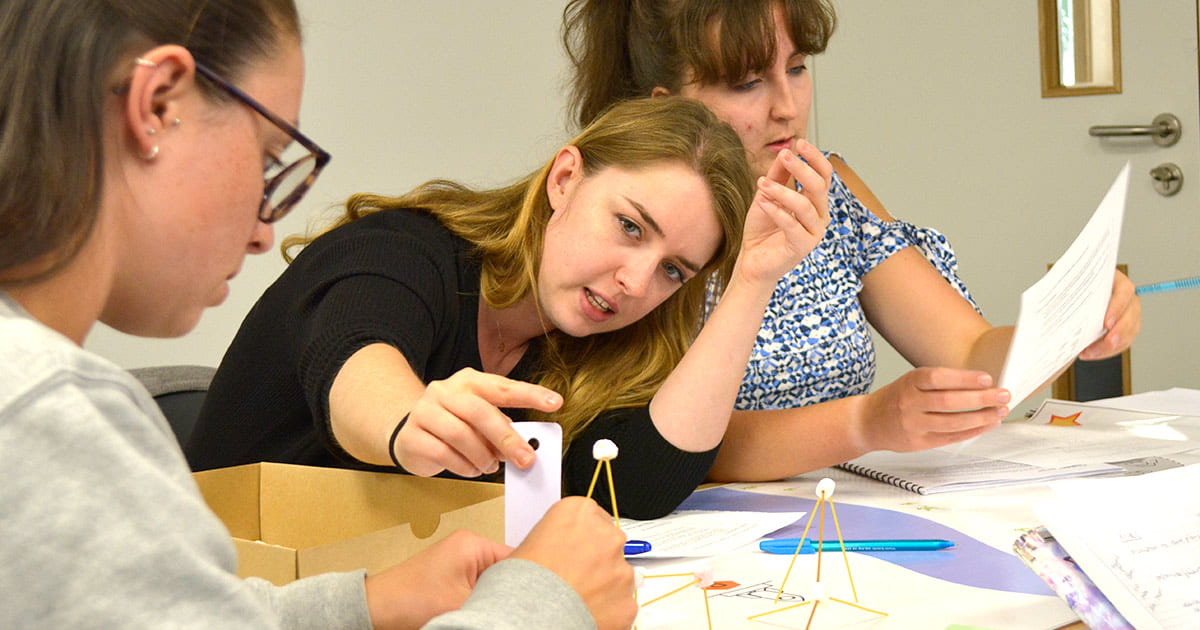
For the second year running, the BDC is organising a skills-enhancing summer school — a free, three-day workshop that’s designed to help doctoral researchers learn how to build successful collaborations with external organisations and explore opportunities beyond academia.
Below, the BDC’s Industrial PhD Programme Officer, Dr. Aby Sankaran, explains why ‘Skills for the Future’ (1–3 July) will be beneficial for those considering entrepreneurial or non-academic careers after their research degrees.
Interested in applying for the summer school, which is open to doctoral researchers from all six faculties? Make sure you read to the end …
Reflecting on my own personal experience — and feedback from our previous year’s summer school — these are the reasons any doctoral researcher should apply for ‘Skills for the Future’:
1. You’ll learn about the support that exists within the University
Did you know that the University of Bristol was a top-ten university for spin-outs in 2018? Attending the summer school will be a great way to explore entrepreneurial ideas, get a better understanding of intellectual property (IP) — and hear directly from the Head of Commercialisation about what the University can do for you!
2. It’s hands-on learning about agile thinking
Everybody has great ideas (sometimes) — but what’s key is actually identifying the potential in these ideas, irrespective of the subject area. Evolving your thinking, and looking beyond ‘PhD’, ‘paper publication’ and ‘thesis’, is a step towards realising that potential.
At ‘Skills for the Future’, you’ll explore the key competencies required to work in a hybrid research/industry interface. Who knows? Your idea or research interest could be the next big solution to our global challenges.
3. You’ll hone your critical thinking and problem solving
There is no such thing as an easy PhD. Every project has hurdles, and the best-laid plans of mice and PhD students can get crushed.
How you cope with these issues, though, is what matters. Can you think critically to solve problems and convert threats into opportunities? The summer school is a chance to hear successful alumni share their experiences and the key lessons they’ve learned.
4. Wondering where to start with a start-up? This is Commercialisation 101
You’ve spotted a potential opportunity or you’ve had a superb idea. So what’s next?
The challenge is communicating this to different stakeholders to get their buy-in. What do you need to do to plan and prioritise? How do you raise funding and pitch your ideas? What tools do you have for negotiation? How do you sort out cash flow and finance? ‘Skills for the Future’ is an opportunity to explore, in detail, the issues you’ll face when you take an idea to market — and how you can start preparing now.
5. Meet and build a peer group of like-minded entrepreneurs
You may think that being an expert in your specific field is enough to succeed. Not so. You still have to work with a number of different people, whether it’s policy makers, HR, engineers, stakeholder, customers — or even the people in your own team. Wouldn’t it be nice to have a peer group that you can develop and share ideas with?
The summer school is chance to meet doctoral researchers, from a wide range of disciplines, who are on the same path. Who knows? You might even find your own team or next business partner at the event.
Ready to apply for three jam-packed days of activities and learning, all designed to help you increase the economic and societal impact of your research? Visit our Skills for the Future Summer School page and complete the application form before 9am on Monday 24 June 2019.
If you have any questions about the course, please contact Dr. Aby Sankaran.
Skills for the Future is organised by the Bristol Doctoral College, and facilitated by Spin Up Science and QTEC.


